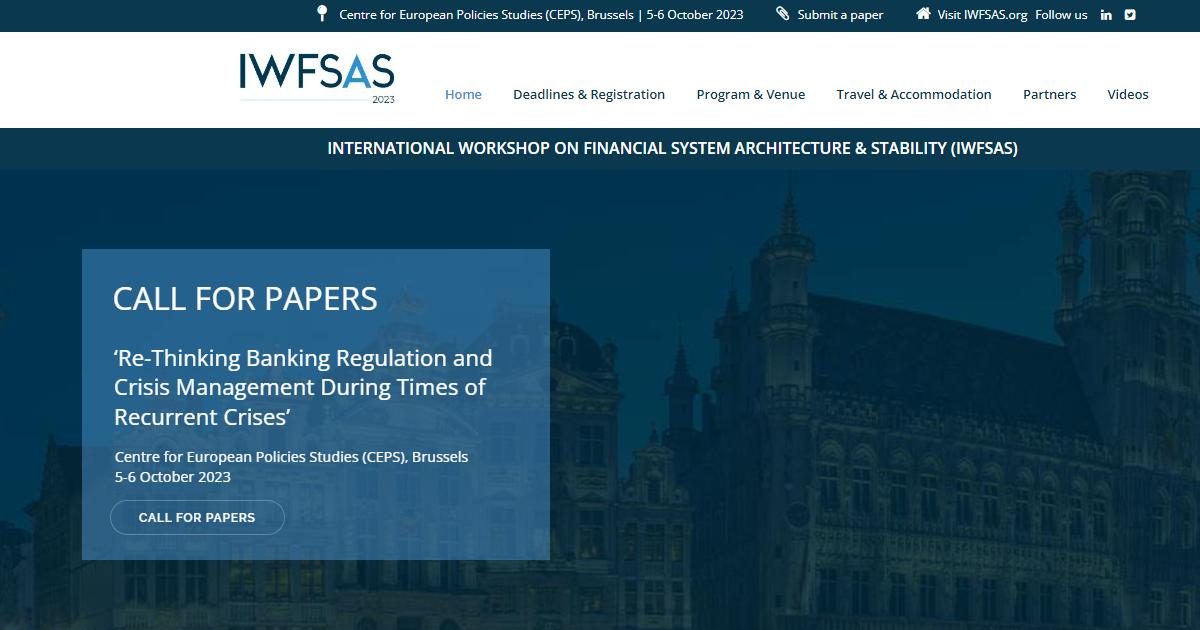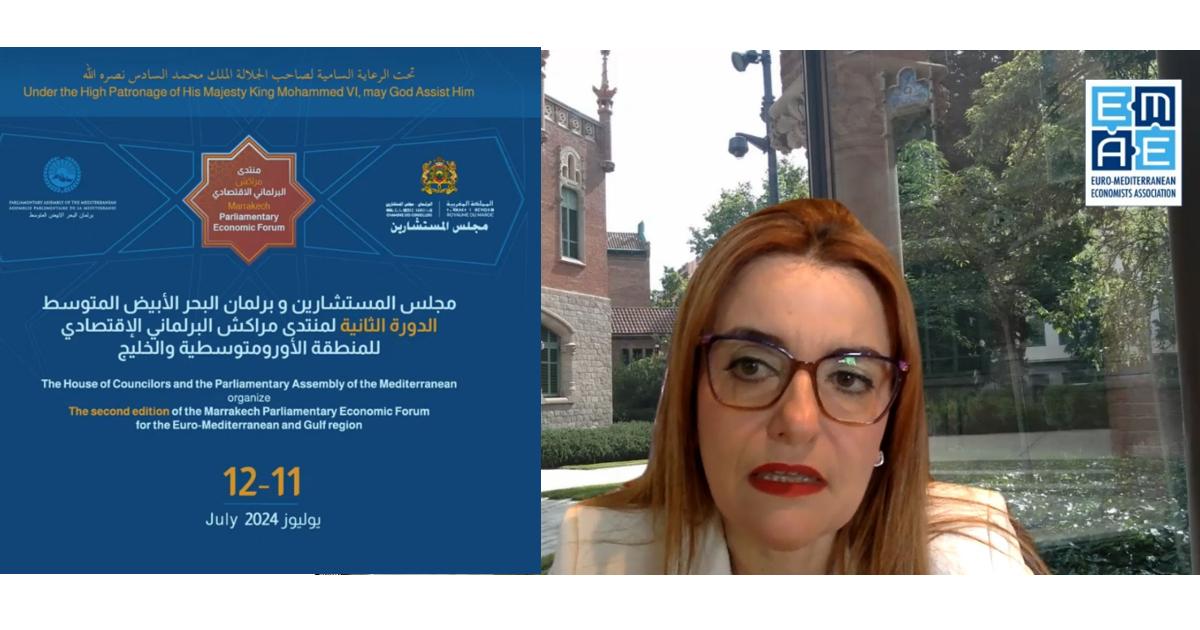The International Workshop on Financial System Architecture and Stability (IWFSAS) provides a forum for academic researchers, practitioners, and policymakers to discuss current issues related to the structure and design of financial systems and their impact on macro-financial stability and sustainable economic development.
IWFSAS 2023 Keynote Speakers:
- José Manuel Campa – Chairperson of the European Banking Authority (EBA)
- Xavier Vives – Professor of Economics and Finance at IESE Business School, Director of its Banking Initiative and current President of the European Finance Association
This year’s IWFSAS meeting will be hosted by the Centre for European Policies Studies (CEPS) in collaboration with Bayes Business School (formerly Cass), the Euro-Mediterranean Economists Association (EMEA), the Gustavson School of Business at the University of Victoria and the National Bank of Belgium (NBB).
The eighth IWFSAS conference offers leading academics, practitioners, and policymakers the opportunity to discuss innovative research on a range of topics related to banking regulation, supervision and crisis management aimed to preserve financial stability during a period of recurrent crises. Banking crises can have devastating effects on the economy, leading to financial instability and bank runs, job losses, and widespread economic hardship.
The recent crisis surrounding Silicon Valley Bank (SVB) and Credit Suisse (CS) has put the crisis management framework in the US and in Switzerland to the test. Calls to further strengthen the regulatory framework for banks, given the different jurisdictional domains for monetary policy and fiscal policy, and the design of the European Banking Union (EBU), have followed suit. Of the three EBU pillars, the Single Supervisory Mechanism (SSM) and the Single Resolution Mechanism (SRM) are now in place, while the proposed European Deposit Insurance System (EDIS) remains merely a proposal.
One key response should be to strengthen the regulatory framework governing banks. This could involve increasing capital and liquidity requirements, improving risk management practices, and enhancing transparency and disclosure requirements. Sounder regulation can also help to prevent banks from taking excessive risks and reduce the likelihood of crises occurring in the first place.
On top of sounder regulation, it is also important to have effective crisis management mechanisms in place. This could involve establishing a framework for early intervention and the resolution of banks that are in distress. Such a framework would allow troubled banks to be dealt with quickly and efficiently, before they become a systemic risk to the wider economy. It could also involve establishing adequately designed deposit insurance schemes, which would protect depositors in the event of a bank failure. By ensuring that depositors are protected, such a scheme could help to prevent bank runs and other forms of contagion from spreading.
Finally, it is crucial to have effective communication and coordination between regulators, central banks, and other relevant authorities during a banking crisis. This would ensure a unified response to the crisis, and that any measures taken are effective in restoring financial stability. Effective communication and coordination can also help to prevent panic and uncertainty among the public and financial markets, which can exacerbate a crisis.
It is crucial that both bank regulation and crisis management respond appropriately to the increasing frequency of banking crises, particularly in markets where traditional banking is changing with the increasing role of open finance and digital currency.
The IWFSAS 2023 call for papers invites submissions of high-quality unpublished manuscripts on topics related to banking structure, regulation and crisis management, including, but not limited to:
- The role of banking regulation in preventing and managing banking crises
- The impact of banking crises on the real economy and society
- Case studies of banking crises and lessons learnt
- Bank business models and their resilience to financial and economic crises
- The effectiveness of crisis management policies, instruments and procedures in mitigating the effects of banking crises
- The effectiveness of deposit insurance schemes in protecting depositors during a crisis
- The role of central banks in managing banking crises and maintaining financial stability
- The impact of technological advancements on banking regulation, crisis management, and deposit insurance
- Climate stress testing; climate-related financial disclosures, reporting and other regulatory issues
- Central banks, the greening of the financial sector and financial stability concerns
- Geopolitical risks and their impact on banking and finance
- Macro-prudential policy post-Covid recovery
- Sustainability and stability of financial systems
- Emerging business models and new asset classes and risks
We welcome both theoretical and empirical contributions on any of the above topics, in addition to other more general topics that relate to the structure and stability of the financial system.
Please submit your full manuscript in PDF format by August 15, 2023 via email to: iwfsas2023@iwfsas.org
Important dates
Submission deadline: 15 August 2023
Notification of acceptance: 7 September 2023
Registration deadline (for accepted authors): 15 September 2023
Conference dates: 5-6 October 2023
For more information please visit: https://iwfsas.org/iwfsas2023/





